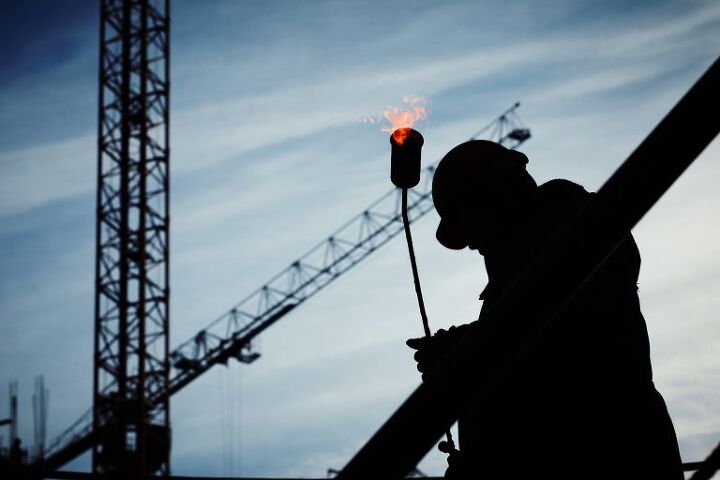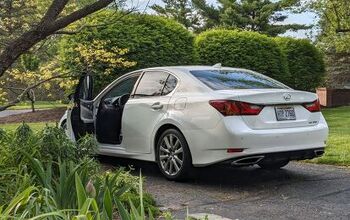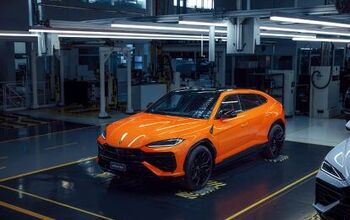Japanese Automakers: Trump's Steel Tariff Will Cost You More at the Dealership

Earlier this month, President Trump signed an executive order imposing a 25 percent tariff on foreign steel and a 10 percent tariff on foreign aluminum. Hoping to receive an exception, the Japanese auto lobby warned that the U.S. import tax would definitely inflate the price of models built by the companies it represents. That’s bad news.
However, the White House has already omitted its NAFTA partners from the tariffs, adding that it would consider further exceptions based on countries’ contributions to U.S. national security, military alliances, trading history, and how much they pay into strategic alliances like NATO.
While Japan is a longtime trading partner with the U.S., there currently exists a $69 billion deficit between the two countries. Trump also bemoaned Japan’s unwillingness to accept American imports. Still, the two have shared military alliances throughout the 20th century, with one ugly exception during World War II. They currently operate under the Treaty of Mutual Cooperation and Security and the U.S. currently considers the Japan one of its closest allies, despite it not being a NATO member — placing it in reasonably positive standing for tariff exceptions.
On Thursday, the Japan Automobile Manufacturers Association (JAMA) said it is anticipating what kind of exemptions might be made for U.S. trading partners beyond Canada and Mexico. Obviously, it hopes to be considered. While Trump’s strategy may be aimed at China, which accounts for almost half of the world’s steel production, Japan is the second highest steel exporter by volume and would be hit hard by the import fees.
According to Automotive News, JAMA Chair and CEO of Nissan Motor Co. Hiroto Saikawa said U.S. tariffs would likely drive up auto prices across the board. “If there is going to be a tariff levied, then everyone will have to raise their prices,” Saikawa said in a recent press conference. “I don’t think this will have any good impact.”
Trump’s initiative drew praise from domestic steel executives and union leaders, but the general mood in Washington is one of concern. Democrats are likely to oppose the president at every turn, and many Republicans have openly voiced their opposition to the tariffs, too. House Speaker Paul Ryan said he understood China’s steel dumping was a serious problem, and certainly unfair to other countries, while urging the president to exercise caution.
“I think the smarter way to go is to make it more surgical and more targeted,” he said.
Ryan said a blanket approach could have “unintended consequences.” As of now, those consequences have not yet fully manifested. Saikawa did not bother to estimate how much Japanese car prices might rise and noted that the country’s automakers try to source steel locally whenever possible. That could help suppress the price bloat, though there’s no way of knowing by how much until more time has passed.
“We do not see the full picture,” Saikawa said. “We have to wait and see.”

A staunch consumer advocate tracking industry trends and regulation. Before joining TTAC, Matt spent a decade working for marketing and research firms based in NYC. Clients included several of the world’s largest automakers, global tire brands, and aftermarket part suppliers. Dissatisfied with the corporate world and resentful of having to wear suits everyday, he pivoted to writing about cars. Since then, that man has become an ardent supporter of the right-to-repair movement, been interviewed on the auto industry by national radio broadcasts, driven more rental cars than anyone ever should, participated in amateur rallying events, and received the requisite minimum training as sanctioned by the SCCA. Handy with a wrench, Matt grew up surrounded by Detroit auto workers and managed to get a pizza delivery job before he was legally eligible. He later found himself driving box trucks through Manhattan, guaranteeing future sympathy for actual truckers. He continues to conduct research pertaining to the automotive sector as an independent contractor and has since moved back to his native Michigan, closer to where the cars are born. A contrarian, Matt claims to prefer understeer — stating that front and all-wheel drive vehicles cater best to his driving style.
More by Matt Posky
Latest Car Reviews
Read moreLatest Product Reviews
Read moreRecent Comments
- Mike-NB2 This is a mostly uninformed vote, but I'll go with the Mazda 3 too.I haven't driven a new Civic, so I can't say anything about it, but two weeks ago I had a 2023 Corolla as a rental. While I can understand why so many people buy these, I was surprised at how bad the CVT is. Many rentals I've driven have a CVT and while I know it has one and can tell, they aren't usually too bad. I'd never own a car with a CVT, but I can live with one as a rental. But the Corolla's CVT was terrible. It was like it screamed "CVT!" the whole time. On the highway with cruise control on, I could feel it adjusting to track the set speed. Passing on the highway (two-lane) was risky. The engine isn't under-powered, but the CVT makes it seem that way.A minor complaint is about the steering. It's waaaay over-assisted. At low speeds, it's like a 70s LTD with one-finger effort. Maybe that's deliberate though, given the Corolla's demographic.
- Mike-NB2 2019 Ranger - 30,000 miles / 50,000 km. Nothing but oil changes. Original tires are being replaced a week from Wednesday. (Not all that mileage is on the original A/S tires. I put dedicated winter rims/tires on it every winter.)2024 - Golf R - 1700 miles / 2800 km. Not really broken in yet. Nothing but gas in the tank.
- SaulTigh I've got a 2014 F150 with 87K on the clock and have spent exactly $4,180.77 in maintenance and repairs in that time. That's pretty hard to beat.Hard to say on my 2019 Mercedes, because I prepaid for three years of service (B,A,B) and am getting the last of those at the end of the month. Did just drop $1,700 on new Michelins for it at Tire Rack. Tires for the F150 late last year were under $700, so I'd say the Benz is roughly 2 to 3 times as pricy for anything over the Ford.I have the F150 serviced at a large independent shop, the Benz at the dealership.
- Bike Rather have a union negotiating my pay rises with inflation at the moment.
- Bike Poor Redapple won't be sitting down for a while after opening that can of Whiparse


































Comments
Join the conversation
Tarrifs on imported steel but not imported cars makes it all the more likely cars will be made outside the US. It would be cheaper for Honda to build an Accord in China with Chinese sourced steel than it would be to make the same car in Ohio. Don't bother to argue that Honda wouldn't be able to assemble as good of a car in China as it does in Ohio.
http://www.abc.net.au/news/2018-03-12/trump-trade-tirade-wont-fuel-us-economic-revival-ian-verrender/9537314